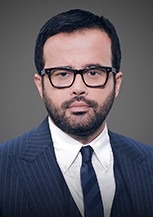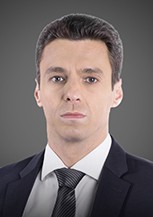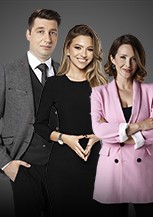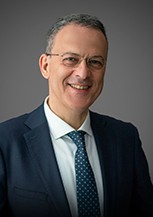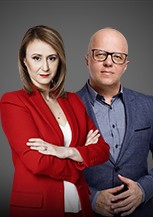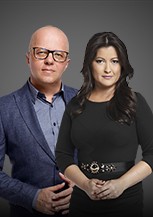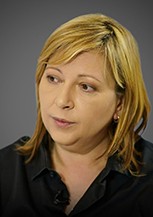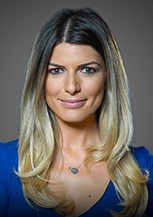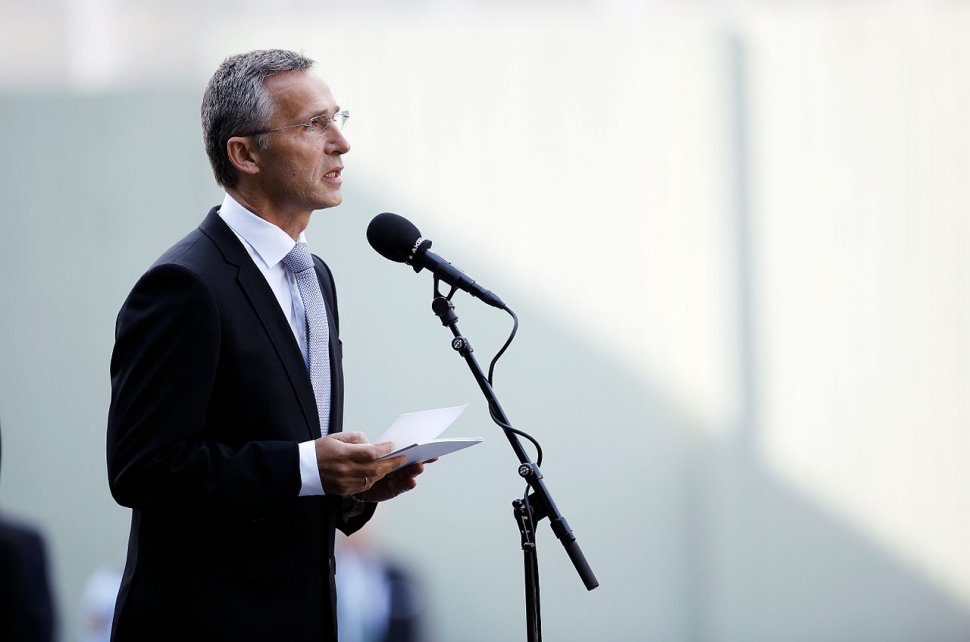In a complicated context, Jens Stoltenberg, NATO Secretary General, gave an exclusive interview to Antena 3.
Jens Stoltenberg spoke about Romania, the country's relationship with Russia and the NATO military alliance.
Currently, the security and defense analysts say that Europe is undergoing the most difficult moment since the Cold War. Romania’s seniors fear a new war, and the young are wondering what is happening.
Radu Tudor: You are getting ready for the summit in Warsaw, which will be a milestone for European security in these difficult times in which we live. What are the decisions that NATO will take at the summit in Warsaw?
Jens Stoltenberg: We will take important decisions related to the way NATO reacts and adapts to an environment that is increasingly more challenging for security, prompted both by a more vocal Russia, to the east, and the violence and restlessness that we see in southern Iraq, Syria, north Africa and the Middle East. NATO must adapt and that means an increased responsiveness, readiness of our forces, but also by growing our presence in the East.
Radu Tudor: After 20 years of relative calm, Russia started to define NATO as a threat, an enemy. What is the reaction of NATO to Russia's aggression against Ukraine and Russia's weekly threatening addressed to NATO members, such as Turkey and Romania?
Jens Stoltenberg: What I have noticed is a more vocal Russia. I saw a particular pattern in Moldova, Georgia and Ukraine, which was the use of Russian military force to intimidate, to change the boundaries, to get what they want with the help of the army. NATO has to react to these things and it does. We have prepared the highest Reaction Force, of collective defense since the end of the Cold War.
We have tripled the size of the NATO Response Force and have increased military presence in the eastern part of the Alliance, with more air and naval presence in the Baltic and Black seas. We also have more ground troops conducting drills at their bases. It has already been done a lot. At the same time, we created eight small headquarters in Romania and in seven other allied countries. I recently visited Romania, where we opened such headquarters. So we increase our presence in the area in response to Russia's behavior.
Radu Tudor: Secretary General, the missile shield at Deveselu in Romania, will it be part of the NATO missile shield that would cover the whole NATO area?
Jens Stoltenberg: Yes, the NATO missile defense program is a defensive program created to defend NATO allies and their territories in the face of threats that come from outside the Euro-Atlantic area. The base from Romania will be activated and will be part of this program very soon, this spring, and this is a step forward in implementing this program. This shows once again the important role Romania plays in the Alliance as the host of a key objective for a major program of the NATO missile defense program.
Radu Tudor: Russia always says this missile defense device in Romania will be aggressive and it will be used for attacking Russia in the future. We know that this is just Russian rhetoric, but what is your reaction to it?
Jens Stoltenberg: The missile defense is by its nature defensive, it is connected with defense, not with attack. And then the purpose, capacity and number of interceptions that this missile defense is based on clearly shows that this is not in any way something against Russia. There is something that is directed against Russia, but a defense system to protect us against the threats coming from outside the Euro-Atlantic area.
Radu Tudor: What is your assessment, as Secretary General , of Romania’s profile within NATO? You have mentioned our country three times in your annual report for 2015.
Jens Stoltenberg: Romania is a very valued ally. You have contributed to the defense, security measures in many ways and we appreciated this. You have taken part in important NATO operations such as those in Afghanistan and Kosovo. You have contributed to greater European defense and you host the missile shield. It is also appreciated that you started in recent years to increase defense spending, which is essential for NATO to react as it does now. I appreciate your willingness to invest more in defense.
Radu Tudor: After the illegal annexation of Crimea by Russia, the strategic balance in the Black Sea region has changed. What is NATO’s reaction to this change in the strategic balance in the Black Sea?
Jens Stoltenberg: The reaction of NATO is to increase our presence in the Black Sea. We increased naval presence in the Black Sea, with several visits to ports and ships of NATO and we also have planes AWACS overflying the Black Sea, so we react by increasing our presence in the Black Sea and the Black Sea region, and this is another reason why we appreciate the strong involvement of Romania, which has an exit to the Black Sea. The NATO allies are important, but being a nation with exit to the Black Sea, Romania is very important and the increased investments in defense is essential to meet the challenges of the Black Sea.
Radu Tudor: What is your message for the Romanian people who, for centuries has been fearing the Eastern threat?
Jens Stoltenberg: My message is that a strong NATO is the best guarantee for stability in Europe. A strong NATO is the best way to preserve peace and stability, but also the best basis for a political dialogue with Russia. We do not want a new Cold War, we do not want a confrontation with Russia, we want a constructive relationship of cooperation with Russia, but it must be based on several fundamental principles, for example respect for the sovereignty and independence of each nation and for that NATO must be strong.
The interview has been granted exclusively for Antena 3 .
